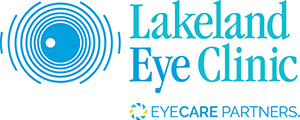
At Lakeland Eye Clinic, we believe that each of our patients from Lakeland deserves the highest level of personalized eye and vision care, regardless of how much they earn. We understand that some of the services we provide are not covered by insurance, and that our patients may incur some out-of-pocket costs for treatment. To help our patients fit care into their budgets, we offer multiple payment and financing options.

Medical insurance providers often require pre-authorization for eye and vision care services. Before your appointment with us, please discuss any pre-authorization requirements with your insurance company.
We will check your vision benefit eligibility and make every attempt to help you understand and make the most of your benefits. It is important to understand that things can change between the eligibility check and the actual payment of the claim. For example, changes in insurance, lapse of time, new benefit years, claims that arrive to the payer after eligibility was checked, and purchases made between checking eligibility and placing an order for glasses or contacts. A quote of benefits is not a guarantee of benefits or payment. Charges not covered by your insurance company or benefit plan, as well as any co-payments, deductibles, and coinsurance amounts, are your responsibility.
If your treatment is deemed to be elective (not medically necessary), it may not be covered by insurance. However, it is possible to pay for your out-of-pocket costs with funds from a medical spending account, like an FSA or HSA. We can also help you learn more about medical financing with CareCredit.
We accept the CareCredit credit card for out-of-pocket expenses. If approved, patients can take advantage of promotional financing options with convenient monthly payments. Explore promotional financing options using the Payment Calculator below.
*Subject to credit approval. Minimum monthly payments required. Visit www.carecredit.com for details.
Patients can use funds from medical spending accounts like FSA (Flexible Spending Account), HSA (Health Savings Account, and HRA (Health Reimbursement Account) to cover the cost of care. These funds are specifically designated for healthcare expenses, and are employer-sponsored and tax-deferred. Funds from medical spending accounts may not carry over to the next calendar year, so it’s wise to use them before you lose them.